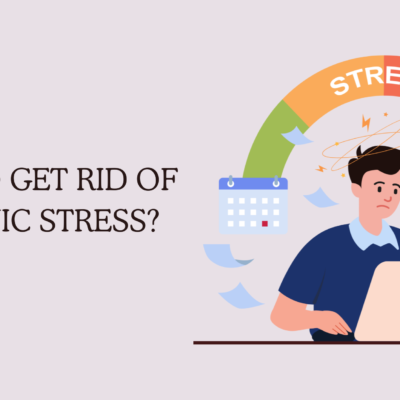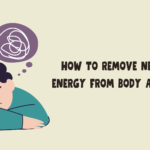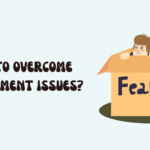How to Get Rid of Chronic Stress: Stress is a normal part of life, but when it becomes chronic, it can take a serious toll on your mental and physical health. Chronic stress can lead to anxiety, depression, high blood pressure, sleep disturbances, and even heart disease. Unlike short-term stress, which is temporary and manageable, chronic stress lingers for weeks, months, or even years, affecting your overall well-being.
If you find yourself feeling constantly overwhelmed, exhausted, or anxious, it’s time to take action. The good news is that chronic stress can be managed and reduced with the right strategies. This article explores the causes of chronic stress, its effects, and proven methods to get rid of it and reclaim your peace of mind.
Also Read:
- How to Achieve Inner Peace and Happiness?
- How to Relief from Mental Stress?
- How to Find True Love and Happiness?
Understanding Chronic Stress
What Is Chronic Stress?
Chronic stress is a prolonged and constant feeling of stress that doesn’t go away easily. It can be caused by:
- Long-term work pressure
- Financial difficulties
- Unhealthy relationships
- Personal trauma or grief
- Health problems
- A lack of control over life circumstances
Unlike acute stress, which is short-lived and often resolved quickly, chronic stress keeps the body in a heightened state of tension, leading to mental and physical exhaustion.
Signs and Symptoms of Chronic Stress
Chronic stress can manifest in different ways, including:
Physical Symptoms:
- Frequent headaches or migraines
- Fatigue and low energy
- Muscle tension or pain
- Digestive issues (stomach pain, bloating, nausea)
- Weakened immune system (frequent colds, infections)
- Insomnia or poor sleep quality
Emotional Symptoms:
- Anxiety and constant worry
- Depression or feeling hopeless
- Irritability and mood swings
- Lack of motivation or interest in activities
- Feeling overwhelmed or trapped
Behavioral Symptoms:
- Overeating or loss of appetite
- Increased use of alcohol, caffeine, or drugs
- Social withdrawal
- Procrastination and difficulty focusing
- Nervous habits (nail-biting, fidgeting)
If you recognize these symptoms in yourself, it’s crucial to take steps to reduce stress and protect your health.
How to Get Rid of Chronic Stress
1. Identify Your Stress Triggers
The first step in managing chronic stress is identifying the root cause. Ask yourself:
- What situations make me feel the most anxious?
- Are there specific people or environments that trigger stress?
- How does my body react when I feel overwhelmed?
Keeping a stress journal can help track patterns and pinpoint what’s causing prolonged stress. Once you know the triggers, you can work on strategies to manage them.
2. Practice Deep Breathing and Relaxation Techniques
Breathing exercises can quickly reduce stress and calm your nervous system.
How to Do Deep Breathing:
- Sit in a comfortable position and close your eyes.
- Inhale deeply through your nose for four seconds.
- Hold your breath for four seconds.
- Exhale slowly through your mouth for six seconds.
- Repeat for 5–10 minutes.
Other relaxation techniques include:
- Progressive muscle relaxation (tensing and releasing different muscle groups)
- Visualization (imagining a peaceful place)
- Guided meditation (using apps like Headspace or Calm)
These practices activate the parasympathetic nervous system, helping your body relax and recover from stress.
3. Exercise Regularly
Physical activity is one of the most effective ways to combat chronic stress. Exercise releases endorphins, the body’s natural mood boosters.
Best Exercises for Stress Relief:
- Walking or jogging in nature
- Yoga and stretching
- Strength training
- Dancing or aerobics
- Swimming or cycling
How Often?
Aim for at least 30 minutes of exercise, 4–5 times a week. Even small movements like stretching or taking the stairs can help reduce stress.
4. Improve Your Sleep Habits
Lack of sleep can worsen chronic stress, making it harder to cope with daily challenges.
Tips for Better Sleep:
- Stick to a consistent sleep schedule.
- Avoid screens (phones, TVs) 30 minutes before bedtime.
- Create a relaxing bedtime routine (reading, warm bath, meditation).
- Keep your bedroom cool, dark, and quiet.
- Avoid caffeine and heavy meals close to bedtime.
Getting 7–9 hours of quality sleep each night allows your body to recover and handle stress better.
5. Eat a Healthy, Balanced Diet
Your diet plays a significant role in how your body handles stress. Processed foods, excessive sugar, and caffeine can increase anxiety and mood swings.
Best Foods for Stress Reduction:
- Leafy greens (spinach, kale): Rich in magnesium, which helps relax muscles.
- Fatty fish (salmon, tuna): High in omega-3 fatty acids, reducing inflammation.
- Nuts and seeds (almonds, walnuts): Provide essential vitamins for brain health.
- Dark chocolate: Contains antioxidants that lower stress hormones.
- Herbal teas (chamomile, peppermint): Naturally calming.
Staying hydrated and eating regular meals can also stabilize your mood and energy levels.
6. Set Boundaries and Learn to Say No
Many people experience chronic stress because they take on too much responsibility. Setting clear boundaries can help protect your mental health.
How to Set Healthy Boundaries:
- Learn to say “No” without feeling guilty.
- Limit time with toxic people.
- Avoid overcommitting to work or social obligations.
- Take regular breaks throughout the day.
Remember, your well-being should be a priority, not an afterthought.
7. Practice Gratitude and Positive Thinking
Shifting your mindset from stress to gratitude can transform how you handle challenges.
Daily Gratitude Practice:
- Every morning, write down 3 things you’re grateful for.
- Focus on positive moments instead of dwelling on stress.
- Reframe negative thoughts (e.g., instead of “I have too much to do,” say “I am capable of handling challenges one step at a time”).
Gratitude rewires your brain to focus on the good, reducing stress over time.
8. Connect with Supportive People
Social support is essential for stress management. Talking to a trusted friend, family member, or therapist can help relieve emotional burdens.
Ways to Build a Strong Support System:
- Spend time with loved ones who uplift you.
- Join a community or support group.
- Seek professional help if stress is overwhelming.
You don’t have to face stress alone—seeking support is a sign of strength.
9. Engage in Activities That Bring You Joy
Make time for hobbies and activities that relax you and bring you happiness.
Ideas for Stress-Relieving Activities:
- Reading a book
- Listening to music or playing an instrument
- Painting or drawing
- Gardening
- Cooking or baking
- Traveling or exploring new places
Taking breaks to do things you enjoy helps reset your mind and reduce stress.
10. Seek Professional Help if Needed
If chronic stress is interfering with your daily life, consider speaking to a therapist or counselor. Therapy can provide personalized strategies to manage stress and improve emotional well-being.
Types of Therapy That Help with Stress:
- Cognitive Behavioral Therapy (CBT): Helps reframe negative thought patterns.
- Mindfulness-Based Stress Reduction (MBSR): Focuses on meditation and relaxation techniques.
There’s no shame in seeking help—your mental health matters.
Final Thoughts
Chronic stress can feel overwhelming, but it is manageable with the right approach. By identifying stress triggers, practicing relaxation techniques, exercising, setting boundaries, and seeking support, you can regain control over your life.
Stress is a part of life, but it doesn’t have to control you. Prioritize self-care, stay mindful, and take small steps every day toward a calmer, healthier you.








